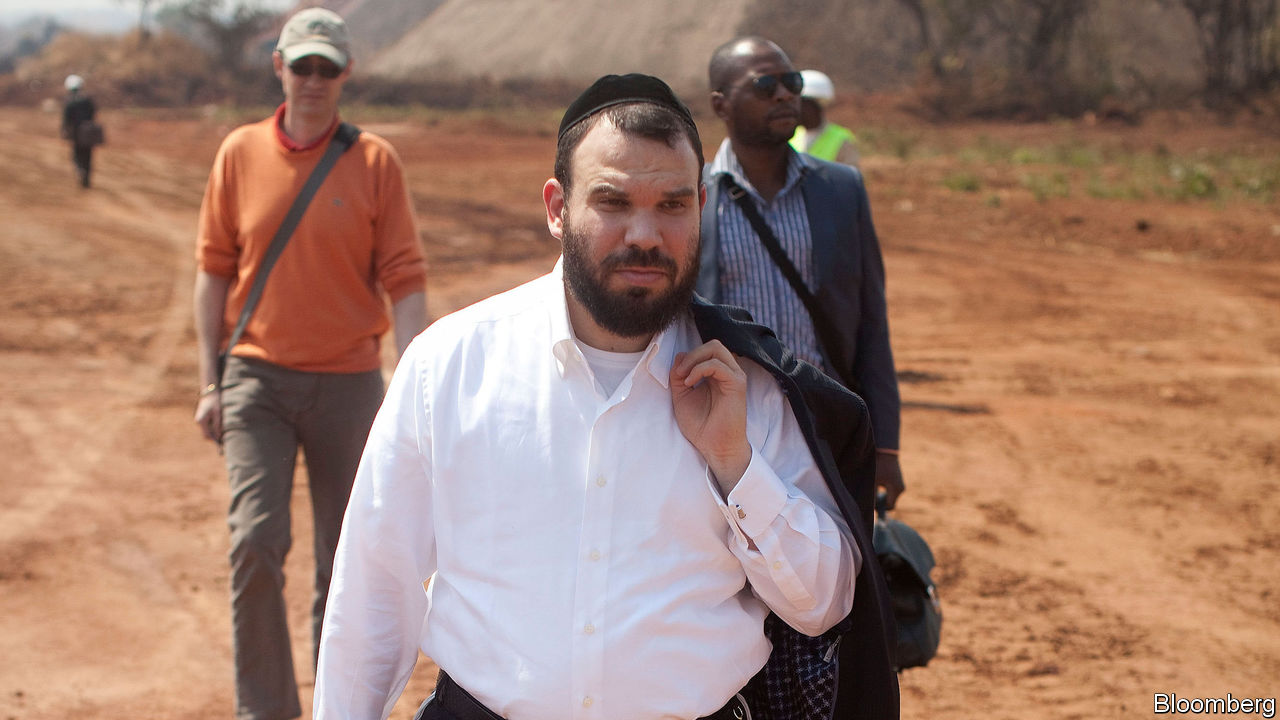
AMONG Africa’s many foreign fixers and mining tycoons, few are more colourful than Dan Gertler, an Israeli diamond trader. Just over 20 years ago at the age of 23 he took a punt on Laurent Kabila, the rebel who in 1997 had just seized the Democratic Republic of Congo (then Zaire) from Mobutu Sese Seko, its dictator for the previous 32 years. Having met him through his son, Joseph, he lent the president $20m to buy weapons. He could have lost everything, but instead made it back a hundredfold. By the time Joseph Kabila took over from his father, after the latter’s murder in 2001, he had become the man largely in charge of distributing Congo’s mining licences to international mining companies.
Two decades on, Mr Gertler’s clout in Congo is undiminished. That was proved on June 15th when Glencore, the world’s largest commodities trader, decided it would rather evade sanctions than not pay the billionaire the royalties he was owed from a Glencore-owned mine. The American government imposed sanctions on Mr Gertler in December for using his friendship with Mr Kabila to siphon off Congo’s mineral wealth, a charge he has denied. The sanctions had left Glencore in a hole: Mr Gertler had sued it in Congo, and had won a freezing order on its assets. Now Glencore says it will pay the royalties—but in euros rather than dollars, and using an undisclosed non-American bank.
-
What does it mean to be Métis?
-
Retail sales, producer prices, wages and exchange rates
-
Foreign reserves
-
Why tipping in America is up for debate
-
America’s trade spats are rattling markets
-
Donald Trump signs an executive order to stop family separations
That was Glencore’s second bold move in a week in Congo. A few days before, the firm solved a different problem by agreeing to recapitalise another of its indirectly-owned mines which G��camines, the Congolese state mining firm, had threatened to close. The mine had such high debts that it would not make a profit (on which to pay taxes) or pay dividends to shareholders (which include Gécamines). To resolve the dispute, Glencore paid $150m directly to Gécamines and converted a large part of the mine’s debt to equity.
The moves seem to have bought Glencore a reprieve in the country. A month ago, some people in Kinshasa wondered if the firm had a future there at all. It says it spoke to American officials before making its decision to pay Mr Gertler. Congo provides over half of the world’s cobalt, a by-product of copper used in electric cars, and if Glencore cannot mine it, Chinese firms could corner the market, they argue. (Inaccurately—Indian and Kazakhstani firms also mine cobalt in Congo.)
But will it work? Though paying in euros and using non-American banks may avoid breaking the rules in theory, in practice it may not be so easy, says Elisabeth Caesens, director of Resource Matters, a Brussels-based NGO. It will be difficult to keep American employees out of transactions. “They’re exposing their people,” she says. And the firm itself could be hit with sanctions for its connections to Mr Gertler. Nor is America the only risk. Though no probe has officially been launched, Britain’s Serious Fraud Office is looking into Glencore’s relationships in Congo. If Glencore gets away with it, it will show that America’s sanctions can easily be sidestepped.
Source: economist
Glencore dodges American sanctions rather than spurn its friends